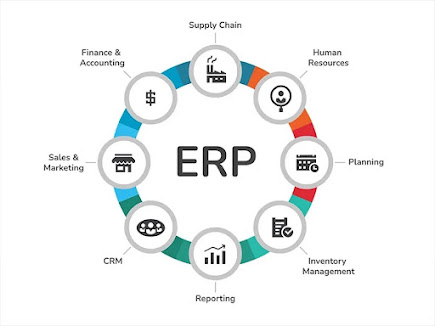ERP (Enterprise Resource Planning) is a type of software that can help businesses manage their accounting and financial processes more efficiently
In Kuwait, where the economy is growing and businesses are expanding, using ERP in accounting can be a game-changer. In this blog post, we'll explore the benefits of ERP in accounting, as well as answer some frequently asked questions.
Benefits of ERP in Accounting:
Improved Efficiency
With ERP in accounting, businesses can automate many of their financial processes, such as invoicing, bookkeeping, and reporting. This can save time and reduce the risk of errors that can occur with manual processes. It can also free up staff to focus on more strategic tasks that can help grow the business.
Better Decision Making
ERP can provide businesses with real-time financial data, allowing them to make informed decisions quickly. This can be especially important in Kuwait, where the economy is constantly evolving and businesses need to adapt quickly to stay competitive. With ERP, businesses can track financial performance, monitor cash flow, and make adjustments as needed.
Increased Transparency
ERP in accounting can provide businesses with greater transparency into their financial processes. This can help businesses identify areas where they can improve efficiency or reduce costs. It can also help ensure compliance with local regulations, which can be critical in Kuwait's highly regulated business environment.
Scalability
ERP in accounting is scalable, which means it can grow and evolve as a business expands. This can be especially important for businesses in Kuwait, which are often looking to expand into new markets and grow their customer base. With ERP, businesses can add new users, modules, and features as needed to support their growth.
FAQs:
Q: What is ERP in Accounting?
A: ERP in accounting is software that helps businesses manage their financial processes more efficiently. It can automate tasks like invoicing, bookkeeping, and reporting, and provide businesses with real-time financial data to make informed decisions.
Q: How does ERP in Accounting save time?
A: ERP in accounting can automate many tasks that are typically done manually, such as data entry and reporting. This can save time and reduce the risk of errors that can occur with manual processes.
Q: Can ERP in Accounting help businesses make better decisions?
A: Yes. ERP in accounting can provide businesses with real-time financial data, allowing them to make informed decisions quickly. This can be especially important in Kuwait, where the economy is constantly evolving and businesses need to adapt quickly to stay competitive.
Q: Is ERP in Accounting scalable?
A: Yes. ERP in accounting is scalable, which means it can grow and evolve as a business expands. This can be especially important for businesses in Kuwait, which are often looking to expand into new markets and grow their customer base.
Q: Is ERP in Accounting compliant with local regulations?
A: Yes. ERP in accounting can help ensure compliance with local regulations, which can be critical in Kuwait's highly regulated business environment.
Conclusion
ERP in accounting can provide many benefits for businesses in Kuwait, from improved efficiency and better decision making to increased transparency and scalability. By using ERP, businesses can streamline their financial processes, gain greater visibility into their operations, and make more informed decisions. Whether you're a small startup or a large enterprise, ERP in accounting can help you take your business to the next level.



Comments
Post a Comment